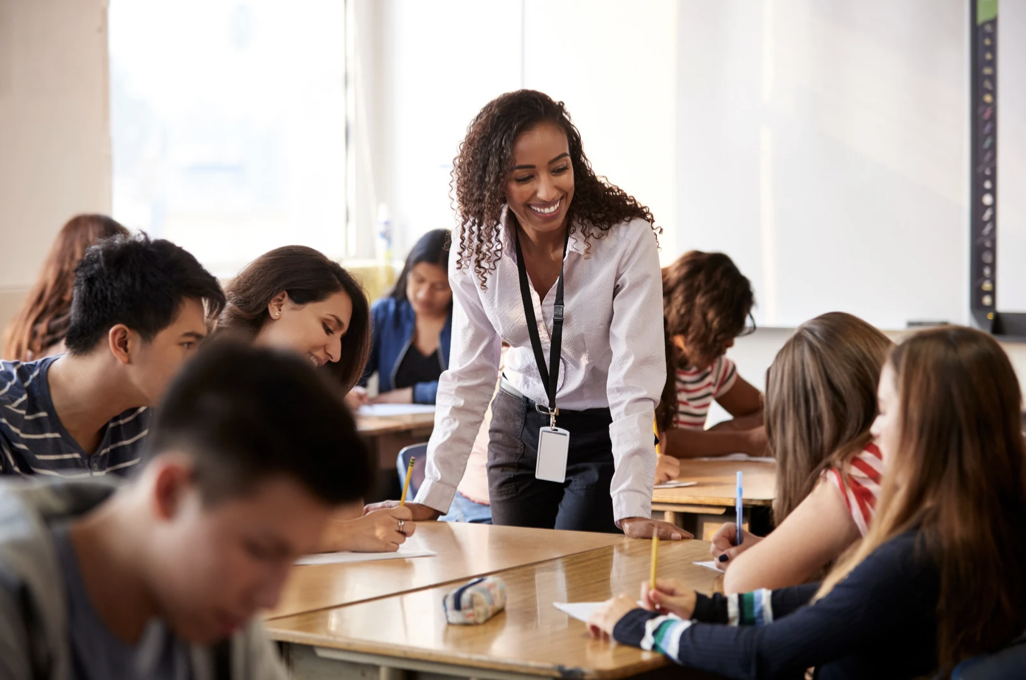The Top 5 Behavior Strategies to End Your School Year Strong
Behavior management is a critical focus this time of year. As summer draws near and enthusiasm wanes, educators face the challenge of engaging students while maintaining focus on curriculum and essential student outcomes.
With a flurry of activities such as field trips, state and district testing, and increased absences, students face disruptions to their usual routines. These changes can often lead to heightened behaviors and a need for stability.
While there’s no quick fix for behavior challenges, this post will offer five practical strategies to help maintain consistency in the classroom amidst end-of-year disruptions. Whether these challenges happen today, tomorrow, or in the coming month, these strategies are designed to provide actionable solutions. By understanding the unique difficulties associated with end-of-year behavior management, educators can gain confidence in devising a clear plan to integrate effective strategies into their classrooms.
Here are 5 End-of-Year Behavior Management Strategies:
1. Maintaining Structure and Routine
Maintaining structure and routine is crucial for helping students feel secure and supported during the inevitable disruptions at the end of the school year. Educators can achieve this by continuing to enforce classroom rules and expectations for behavior, participation, and respect. Clear communication of expectations regarding behavior, assignments, and attendance for the remaining weeks is also essential.
Moreover, incorporating engaging and interactive activities into lesson plans can sustain student motivation and enthusiasm for learning during this period.

2. Reinforce Positive Behavior
Reinforcing positive behavior is essential for creating a positive and supportive learning environment. It’s important to focus on specific behaviors rather than using general praise like “good job.” Students will understand exactly what they did well, encouraging them to repeat that behavior. Providing opportunities for success is also important. It creates situations where individuals can demonstrate the desired behavior reinforces its importance and encourages its continuation.
Consistency is key. Ensure that you consistently reward the desired behavior and avoid inadvertently reinforcing undesired behavior. By reinforcing positive behavior consistently and specifically, educators can foster a classroom atmosphere where students feel valued and motivated to succeed.
3. Promote Self-Regulation
Promoting self-regulation is key to fostering students’ emotional well-being and academic success during this busy time of year. Educators can achieve this by teaching self-regulation techniques such as deep breathing, mindfulness, and positive self-talk. Integrating structured breaks into the school day will allow students to recharge and refocus, helping them to self-regulate.
Additionally, modeling self-regulation through calmness, resilience, and problem-solving skills sets a positive example for students to emulate, ultimately promoting a more conducive learning environment.
4. Address End of the Year Stress
Acknowledging end-of-year stress is paramount in helping students feel more in control and less overwhelmed. First, plan to break tasks into smaller, manageable assignments and create realistic schedules.
Secondly, promote open communication to create a supportive environment where students and educators can openly discuss their stressors and seek help when needed. Lastly, make support services like counseling, mental health resources, and peer support groups readily available to provide support systems for managing end-of-year stress effectively.

5. Reflect and Celebrate!
Educators should carve out time to reflect and celebrate the behavior strategies that made the most impact throughout the year. Reflecting on what worked well and what didn’t can provide valuable insights for future improvements. Educators can tailor their approach to better meet individual needs by identifying students who responded positively to certain strategies.
Personalized celebrations, such as sending notes or having conversations, can show appreciation for each person’s positive contributions, fostering a supportive environment. Establishing an appreciation wall where students can express gratitude towards their peers encourages camaraderie and reinforces positive behavior. Additionally, setting future goals based on past achievements promotes ongoing personal growth and progress, ensuring continued success in behavior management efforts.
Are you looking to end the school year on a strong note? Click here for more information on transforming your school’s behavior management system to promote more equity and inclusion.
If you’re seeking effective behavior management strategies for your district, please email josh@creativelyfocused.net or learn more about how Creatively Focused is designed to increase retention, build educator morale, and lessen the workload.